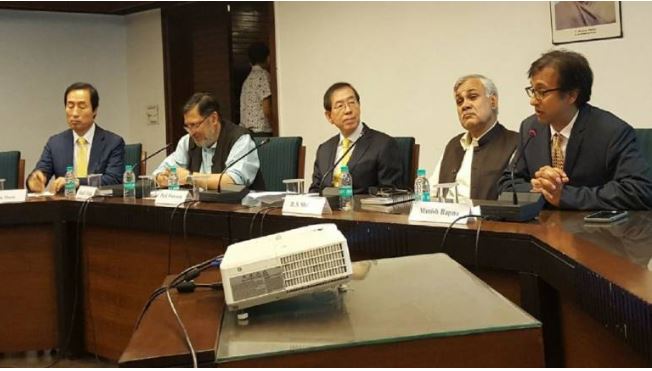[India_Money Control] Indian cities can emulate Seoul’s example for urban transformation
Indian cities can emulate Seoul’s example for urban transformation
The South Korean city has adopted an Urban Planning Charter for the next 100 years
Moneycontrol News @moneycontrolcom
As many as 66% people in Seoul use the metro and bus system, the waste disposal mechanism has been decentralised and a large landfill has been transformed into an urban public space. Also, existing highways have been torn down for better traffic management and an Urban Planning Charter with inputs from citizens has been put in place for the next 100 years to improve quality of life – these are some examples of city planning from Seoul that Indian cities can emulate.
These were among some of the urban transformation ideas shared by Park Won-Soon, Mayor of Seoul and his team at a seminar on 'Seoul-Delhi Dialogue: Towards a Sustainable City' organised by the World Resources Institute India and Nehru Memorial Museum and Library in the Capital recently.
The South Korean team spoke mainly about water, waste and traffic management in the city. They highlighted the need for an apex decision-making body and how city administration collaborated with other groups, such as private bodies and think tanks.
"We are happy to share the approach and our learnings with the India government. The key is collaborated efforts, thinking about what the people need. The power lies with citizens", said Won-Soon, Mayor of Seoul.
DS Mishra, Secretary MoHUPA said that “Indian cities can learn a lot from Seoul's urban transformation and some of the key concepts are already part of the Smart City Program.”
"Knowledge exchange is essential in knowing what does not work, more than what works. Open Dialogues like these set context for better international relations and sharing platforms", said O P Agarwal, CEO, WRI India.
The team from Seoul explained that the subway (metro) and bus systems in the city comprise about 66 percent of the modal share. The waste disposal mechanism has been decentralized and a large landfill has been transformed into an urban public space. Existing highways have been torn down for better traffic management. Seoul has developed an Urban Planning Charter for the next 100 years with inputs from the citizens and what they need to improve their quality of life.
"Indian cities can learn a lot from the Seoul experience, not just the results but the process of transformation as well,” said Manish Bapna, Managing Director, World Resources Institute.
Speaking after the event, Amit Bhatt, director of WRI India told Moneycontrol that “the transformation of Seoul's urban transport system is a great case study for Delhi which is even more relevant due to the ongoing smog in Delhi NCR,” adding the city has 300-odd km of metro, 7000 buses, a BRT and safe infrastructure for walking and cycling too.”
The event was attended by Mayor of Seodaemun district, Seoul, principal secretaries, joint secretaries and other senior officials from MoHUA and other government agencies, academic institutes and research organisations.
